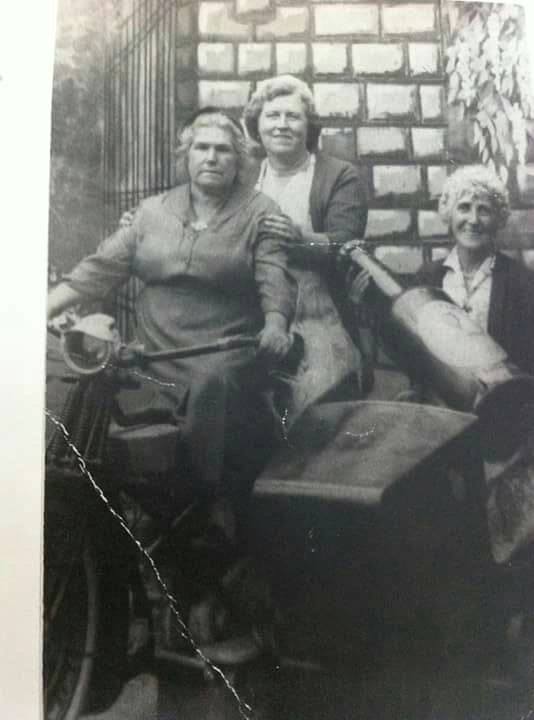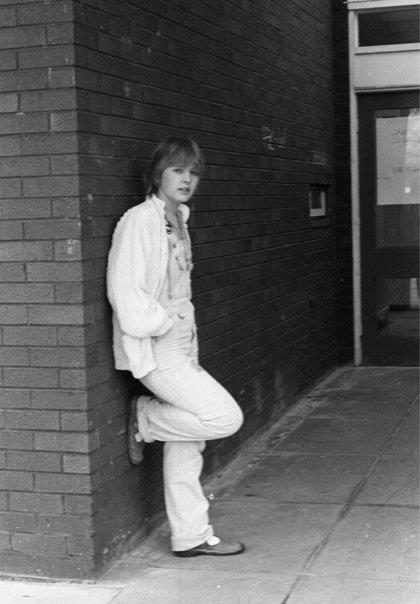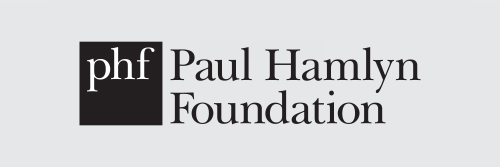

Pauline Rowe on North: Identity, Photography, Fashion
Pauline Rowe, our writer-in-residence, pens her personal response to our current exhibition, North: Identity, Photography, Fashion. She also presents two of her poems, selected in response to ‘North’.
North is an exhibition at Liverpool’s Open Eye Gallery (6th Jan – 19th March), curated by Lou Stoppard and Adam Murray. It offers a wide range of images, films, interviews, clothes, fashion, voices (even furniture props) that give a sense of the cultural and visual heritage of the North, from Liverpool to Yarm, from Blackpool to Berwick.
The first chorus of Victoria Wood’s song ‘Northerners’ could be used as a preliminary checklist for the exhibition, with every line ticked (with the exception, perhaps, of tripe):
You just go:
Tripe,clogs
Going to the dogs
Wigan and Blackpool tram
Brassbands
Butties in your hands
Whippets and next door’s mam.
Clothcap
Hankie full of snap
Shawlsandscabbyknees
Hot-pot
Seven to a cot
Headscarves and mushypeas.
What is cliché while exhausted with overuse is nevertheless rooted in true experience. I grew up in Widnes, an industrial, rugby town, 13 miles outside of Liverpool in the years when Thatcherite policy determined the managed decline of towns like mine. I travelled every day by coach to school in Liverpool making me at once a woolly-back in Liverpool and (according to disapproving Widnesian peers) a “snob” at home. My childhood North was made of Catholicism, playing out on the Bongs, running to the corner shop on “a message”, praying for the dead, trips to “the dogs” on Friday night (where my Uncle Joe raced Mitty, his greyhound), a weekly visit to the library, Saturday night Confession; there was also a fierce sense of class loyalty in my Dad’s romantic Socialism. The domestic drama we knew came from Mum’s ambition for an education denied her and a desire to live in a different part of town. In brief, mine was a trope-drenched North that came to me from a heritage of coal-mining and ‘illegitimacy’ through my mother’s family and agricultural labour, factory work, and a love of drink on my Dad’s side. (Yet so much more than this, of course.)
Each of us can find some evidence of our own North in the Stoppard-Murray exhibition, whether reflecting experience, memory or imagination. There are voices and faces that resonate, as well as a challenging sense of place, appearance, beauty and geography.
I didn’t go to the Hacienda in the early 80s although there were older kids (growing up in Widnes, like me) whose cultural focus was Manchester rather than Liverpool. I was so out of tune with the fashion-music zeitgeist of the late 70s that I can’t tell you who was playing on the one night I went to Eric’s (I’d gone there as an alibi of sorts for my friend, Phil) or who served me when I went to buy Patti Smith’s Horses from Probe Records. I didn’t wear make-up, my hair was short and my adolescent idea of fashion was a pair of pale cords, a granddad shirt, a pair of braces, checked hacking jacket and a flat cap. My casual look depended on dungarees and a variety of badges. I hold my hands up. Fashion, to me, is – and always has been – another country. So the casual (masculine) aesthetic through football and music, Adidas and Fred Perry or Paul Smith’s R. Newbold celebrated in Gallery Two and in Gary Aspen’s film/interview remains a charming mystery. I don’t think fashion trivial or pointless – it’s just a baffling alternative universe.
The GPO film Spare Time made in 1939 by Humphrey Jennings and shown in Gallery One is a gem (you can also find it on Youtube). It’s a documentary about the people of four towns (Sheffield, Manchester, Bolton, Pontypridd) – and the three industries of steel, cotton and coal. It observes the hours “(b)etween work and sleep … a time we call our own” “a time when we have a chance to do what we like, a chance to be most ourselves” away from work. For purposes of the exhibition South Wales becomes a kind of honorary North. In this amorphous in-between time we see ghosts of our own familial histories. A woman pours a cup of tea, a man puts on his hat and scarf, there are rural bike rides, pubs, pies and brass-bands, football, the penny pools, a pigeon shed, men in flat caps, factories, the pit-head. The rhythms of the mill towns are different to coal villages and steel towns. The doleful Welsh voices singing Handel, appropriate accompaniment to the images of men carrying lamps in the dark, provide an elegy for lost systems of labour, as well lost communities.
Also In Gallery One there are photographs of the non-famous, some more arresting than the glamorous magazine/archival images of Morrissey or Liam and Patsy. Alice Hawkins’ The Liver Birds (2013) shows two sharp, young women dressed in complementary black and white, wearing their rollers like a fashion helmet – a familiar defiance and confidence in their glamour and poise. This image is positioned close to John Bulmer’s Mill Girls, Ellan Yorkshire (1965); faces from the mid-sixties, young girls coming from work wearing floral pinnies under heavy coats with scarves tied around their rollered heads and under their chins, worn in the manner of older women. They are eating chips from newspaper and one girl is looking away smiling while her companion (perhaps her sister) stares with suspicion at the camera, out at us. Then there’s street photographer Shirley Baker’s Glamorous Elderly Lady Smoking (1985) – the image of an old girl sitting on a city-centre bench smoking. Her wig, her netted hat and winter coat are all chestnut brown. Her small downward smile is set in an over-generous application of lipstick. She has sketched her mouth with imagination and hope. The rings on her left (cigarette-holding) hand suggest stability while her face tells a very different story. Yet the dominating image in Gallery One is Jamie Hawkesworth’s photograph of an eleven year old girl with long blonde hair wearing a bright (almost Marian) blue Gucci suit that’s too big for her. A serious, questioning character shines out of her face above the garments raising questions of wealth and poverty, femininity, class, religion even. She is odd, misplaced, triumphant – and made me think of Thomas Gainsborough’s Blue Boy.
There are more questions raised than answered by North about Northern identity – about gender and power, beauty and industry, heritage and class, language and image – but this is why it is so timely, and well worth a visit before it closes on 19th March.
Please also note that there is a wonderful resource through SHOWStudio that remains available beyond the exhibition dates for films and interviews and imaginative projects with students (see: http://showstudio.com/project/north)
The following poems were taken from Waiting for the Brown Trout God, Pauline Rowe (Wirral, Headland Publications, 2009)
1967
That winter she signed up for night school,
sneaked books in underneath her coat. Brought Blake
home with his tyger. Slow burning fuel
for those first arguments. No mistake
to think poetry dangerous. His voice
lower than hers but we could hear her shout
just talk to me – listen – I have no choice –
He worked at Fords. Couldn’t work her out.
Next social history. The Spinning Jenny.
Revolutions at our kitchen table.
No more apple pies and not many
laughs. No shifts left. He was unable
to turn back to when ignorance was bliss.
She studied books. His life was hit and miss.
Autobiography 1968
The white blonde hair a memory as school
begins with scrapings from the desk
of wax and dirt like crayon worms but black.
Each Morning Offering a pledge
of works, prayers, sufferings and joys
like letters fixed on pyramids of milk.
At night, an old man dying in a room
my sister fills with blossom
pink and stooped in cups along the window ledge.
We laugh although we are without the teeth we need
to speak the kind of words we hear in waves;
warming valves, phonograms, receivers.
On Friday nights
St. Helens and the Dogs, my father’s treat,
a glass of vimto and a soft ham barm.
We amble to the car
then orange street lamps pass us,
many equal frames of moving frame
on reel. On Sunday night,
the week made circular with light
from radio turned low
and mother’s candle
burning in the church.

